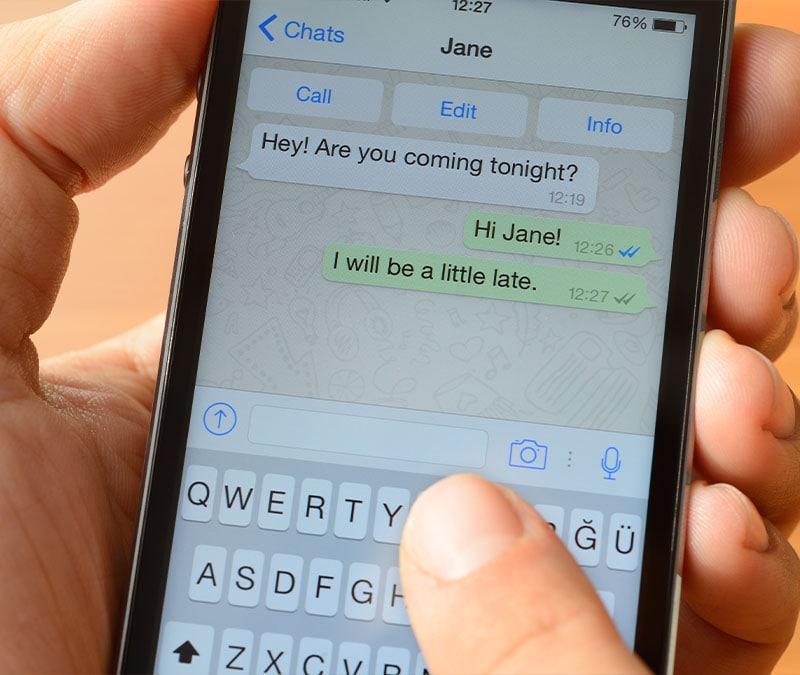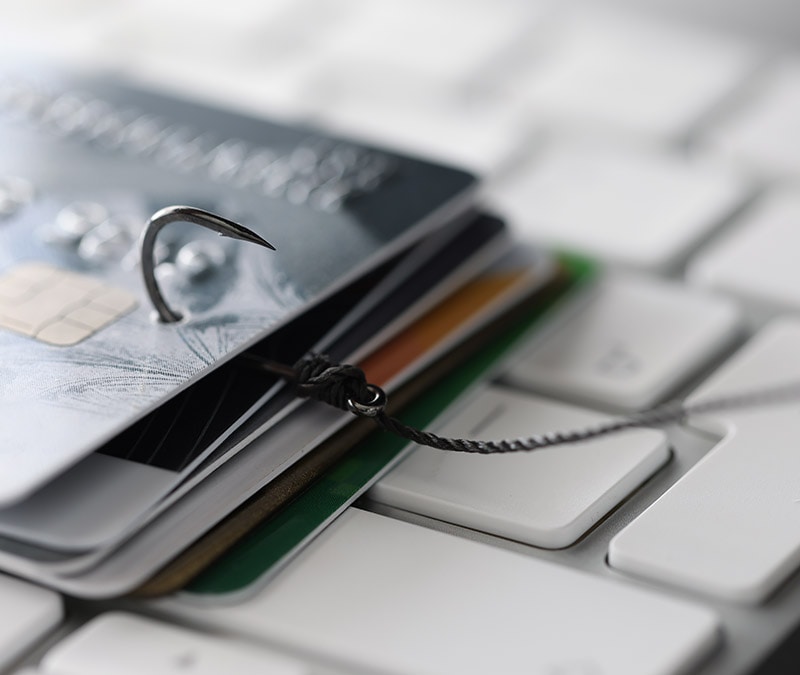Is TikTok safe? Risks you should be aware of
TikTok is one of the world’s most popular social media apps, with more than a billion monthly active users. But, like every online platform, scams and other threats could be lurking. Learn how safe TikTok is and how Norton 360 Deluxe, with its built-in VPN and scam-detection technology, can help you secure your online activity.

TikTok has rapidly become one of the most used social media platforms in the world, but not without its share of controversy. Questions of privacy, access, and security have been thrust to the forefront of the broader conversation around social media. Now, it’s more important than ever to understand the potential risks of TikTok, as well as the different types of scams you might find on the platform.
What is TikTok?
TikTok is a short video hosting and social media platform developed by the Beijing-based media company ByteDance. Despite its popularity, TikTok has been at the centre of a few controversies over the years, with parents, businesses, and lawmakers expressing concerns about the app’s security, trustworthiness, and potential ties to the Chinese government.
These controversies have led many to ask: Is TikTok dangerous? Data collection, harmful content, and national security are some of the app's most contentious areas. So, is TikTok safe to use? And are some age groups more vulnerable than others? We'll explore several of the app's biggest security threats to shed light on these questions.
How safe is TikTok?
To many individual users, TikTok may not seem any riskier than other social media apps. While concerns have been raised about social media’s effects on mental health, attention spans, and critical thinking, especially for kids and teens, the platform itself will probably not infect your phone with malware or steal your financial details.
That said, there are worries that TikTok poses a potential risk to data privacy and national security, leading to countries like the US and India banning the app. Whilst the ban in the US lasted less than a day, in India it has been banned since 2020.
Governments around the world have flagged the app as a security risk over concerns about its data collection practices. In Australia, along with the UK and several European Union institutions, government employees are prohibited from installing TikTok on government-owned devices.
TikTok safety features
In terms of user-specific security, TikTok provides a variety of features to help users stay safer on the platform, including:
- Specific safeguards and content restrictions for children under the age of 13
- Private accounts for users between the ages of 13 and 15
- A 60-minute default time limit for users under the age of 18
- An age requirement of 16+ for hosting live-streams
- A policy that only users who are 18 and older can purchase, send, or receive virtual gifts
Does TikTok spy on you?
It depends on what you mean by spying. TikTok collects a considerable amount of data on its users, some of which can be shared with advertisers, governments, third-party apps, and others. This data includes information about your device, the contents of your messages, the content you generate, and much more. But if you’re wondering if a TikTok is spying on you through your camera, the company states, ‘The camera and microphone are only activated when a user has granted TikTok permission to access them’.
TikTok’s privacy policy clearly lays out what data the app collects and who it shares it with, and users agree to this when they create an account.
Nevertheless, TikTok’s data collection has raised the hackles of governments around the world due to the app’s alleged proximity to the Chinese authorities. As such, many countries have banned or restricted TikTok over concerns that it could be compelled to share user data with the Chinese government. And while evidence of such data sharing may be difficult to confirm, allegations persist.
What types of data does TikTok collect?
Like many other apps, TikTok collects data about app functionality and user experience, including:
- Account information: Your name, username, profile picture, email, phone number, and passwords are all collected by the app.
- Information about your contacts: If you grant it permission, TikTok can access information about your phone and social network contacts, including their names, phone numbers, and email addresses. TikTok can match this information against existing users of the platform.
- Your messages: TikTok collects information about the messages you send and receive, including their contents.
- Information in your device’s clipboard: With your permission, TikTok can access text, images, and other information stored in your phone’s clipboard.
- Purchase information: TikTok can collect your payment information, including your card number and billing/shipping address if you make purchases on the platform.
- Cookies/behavioural data: The platform and app uses cookies that can track your activities to gain a better sense of your interests. TikTok observes the videos you watch, how long you watch them, and which ones you save.
- Device data: TikTok knows the devices you use to access the app, and can distinguish them based on their operating systems and network providers.
- Location information: TikTok can log your IP address and some device details to estimate approximate location information.
- User-created content: TikTok stores every post, video, and comment its users engage with. This includes content users create and content they view from other accounts. This also includes metadata like when, where, and by whom the content was created.
TikTok may also receive information ‘about you and the actions you have taken outside the Platform’ from advertisers and other partners, including your activities on other websites, apps, or stores. This includes products and services you purchased — whether online or in person.
While it’s important to note the real privacy concerns related to the amount of data technology companies collect about users — and who they share that data with — these practices are often routine, with companies citing improved app performance as the primary reason.


Who does TikTok share data with?
TikTok does share data with multiple organisations for business and regulatory purposes. Some entities that have access to TikTok’s data include:
- Advertisers: TikTok shares user data with advertisers to create targeted ads and better understand user activity.
- Businesses: TikTok shares data with other social media businesses to learn more about user activities on other apps.
- Governments and police agencies: Law enforcement can request user data from TikTok to assist with investigations or to comply with government mandates. And under Chinese law, TikTok may be compelled to share data with the Chinese government.
- Third-party apps: TikTok shares user data with some third-party apps that its parent company ByteDance doesn’t own. This connects to TikTok's Jump program, which lets users access third-party integrations from companies like Wikipedia and Quizlet to create content.
TikTok makes its developer data-sharing agreement public, which can help users understand how the company handles their information and works with third parties.


TikTok scams
TikTok faces many of the same social media threats that impact Facebook, Instagram, Twitter, and similar apps. Here are some TikTok scams to be aware of:
Romance scams
Romance scams prey on individuals seeking a romantic relationship online. Scammers try to build trust over time and then create various, often elaborate stories to justify asking for money or other benefits. In a TikTok romance scam, a bad actor will often create a fake TikTok account and target real users in comments sections or by directly messaging them.
Fake giveaways
Community engagement is a major part of the TikTok experience. Scammers can try to capitalise on this by holding fake giveaways for nonexistent prizes. The severity of these fake giveaways can vary; some accounts might hold fake giveaways to drive engagement, while more nefarious individuals will attempt to steal money or personal information.
Phishing scams
In a phishing scam, a criminal tries to gain access to sensitive information by posing as a legitimate source. On TikTok, a phishing scammer might try to get information by directly messaging a user and asking for details like login credentials or credit card info. TikTok users might even encounter comments or posts that urge them to click a specific link, which can trigger malware or lead to a dangerous website.


Bad actors, hackers, and criminals can use TikTok to commit various social media scams, but users can use cybersecurity tips to boost their safety on the app.
Cybersecurity tips for TikTok
If you do use TikTok, basic digital hygiene and cybersecurity best practices, like not oversharing and using two-factor authentication to log into your accounts, can help make your time on the app safer. Here are some TikTok security strategies:
- Don’t share private information: Social media apps often spark conversations, but you might not always know who you're talking to. Exercise caution when sharing details about yourself and never share sensitive info like your tax file number or your home address.
- Perform a social media cleanup: Cybercriminals can exploit vulnerabilities in your social media accounts if you aren't careful. Perform a social media cleanup by deleting old accounts you no longer use, making active accounts private, and updating your passwords.
- Use cybersecurity tools: Cybersecurity tools can serve as a line of defence against various TikTok scams. A password manager can help you maintain more control over your accounts, while antivirus software can help protect your device from malware.
Get Norton 360 Deluxe to help protect your digital life
When managing your online life and using social media, protecting your personal information is paramount. Norton 360 Deluxe provides a suite of cybersecurity tools to help you stay safer while you’re on and off the app. With an industry-leading anti-malware engine, dark web monitoring, AI-powered scam detection technology, and a built-in VPN, Norton 360 Deluxe will help give you peace of mind online.
FAQs
TikTok crossed the 1 billion user mark in September 2021, so it’s not hard to see why there are so many questions about the app.
Is TikTok safe for kids?
For years, health experts have cited significant concerns about the risks of excessive social media use for children and adolescents. And while effectively implementing social media safety for kids is crucial, it’s challenging. Even if a parent uses the built-in safety features of TikTok and other social media apps, children may be able to overcome them simply by finding a how-to guide online. However, from December 2025, age restrictions will apply to social media platforms such as TikTok to prevent Australians under the age of 16 from setting up or keeping an account.
Can TikTok track you?
TikTok can track you as soon as you open the app on your device, as it collects a variety of data about who you are and how you use the app. And if you connect your TikTok account to other apps, those third-party apps may have access to some of your account information.
In 2022, security experts discovered a vulnerability within TikTok's Android app that let hackers access and manipulate user accounts. TikTok's developers have since addressed this specific threat, but it highlights concerns about how much user data the app collects and stores.
Can TikTok read my text messages?
TikTok can reportedly read and catalogue any message you send through the app. This includes direct messages, comments, and reports you submit via the app’s ‘Report’ feature.
Does TikTok use a lot of data?
Due to its video-streaming nature, the app can use a significant amount of mobile data. It’s possible to reduce consumption by enabling Data Saver mode within the app, which streams videos at a lower resolution.
TikTok is a trademark of TikTok Ltd.
Editorial note: Our articles provide educational information for you. Our offerings may not cover or protect against every type of crime, fraud, or threat we write about. Our goal is to increase awareness about Cyber Safety. Please review complete Terms during enrollment or setup. Remember that no one can prevent all identity theft or cybercrime, and that LifeLock does not monitor all transactions at all businesses. The Norton and LifeLock brands are part of Gen Digital Inc.









Want more?
Follow us for all the latest news, tips, and updates.